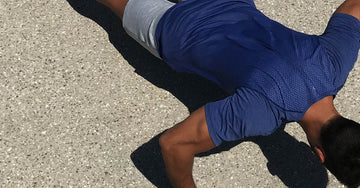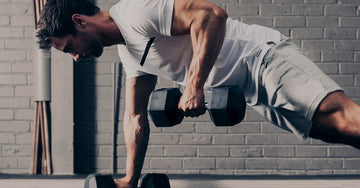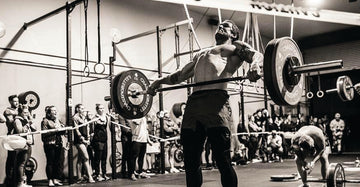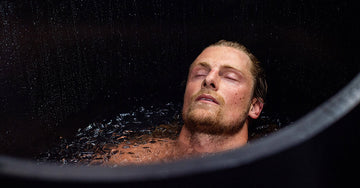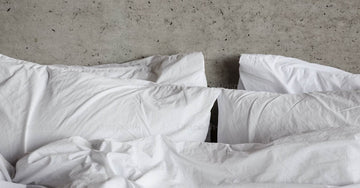Health & Fitness
The Truth About How Much Water You Should Drink
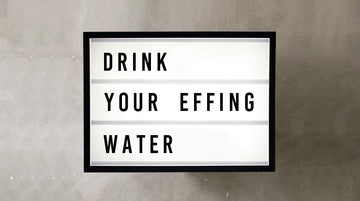
How much water should you drink each day? It seems like a rhetorical question, given most of us have been told to drink 8 glasses a day since we were kids. But the 8-glass rule is really just a myth. There are some newer recommendations for water intake, but ultimately, it depends on your lifestyle.
The Myth
The 8-glass rule has been the undisputed truth for decades. However, it isn’t based on scientific evidence. A study conducted by the American Journal of Physiology determined that other liquids could be included among the 8 glasses. Study subjects remained healthy and hydrated despite drinking less than the recommended amount of water. They even had caffeinated drinks as part of their daily intake.
The 8-glass rule is easy to remember, and thus, easy to disseminate amongst millions of people. But it just isn’t true.
 Your Intake
So, if the 8-glass rule is bogus, how much should you drink? That depends. Revised guidelines suggest men should drink 2.6 liters of water, which equals about 10 cups. However, your fluid intake can include teas, juices, coffee, and alcohol. And, if you’re hitting the gym hard multiple times a week, you’ll need even more water on your workout days.
If you don’t feel comfortable winging it, you can always use a water calculator, like the one posted at Bodybuilding.com. According to this calculator, a man who weighs 91 kilos and works out for an hour or more a day should drink roughly 4.5 liters of water each day. This is significantly more than the general guidelines suggest (and to be frank, it’s a lot of water).
Ultimately, you should be mindful of your activity level and fluid consumption throughout the day. The more you sweat, the more fluids you need to drink. If you heed this, you should stay in healthy territory.
Dehydration
Water intake matters because you want to avoid dehydration. When the body becomes dehydrated, cell function decreases, brain activity slows, and blood circulation is interrupted. You might feel your mouth or your skin dry out, and you might feel lightheaded, dizzy, or fatigued. Other symptoms include blurred vision, muscle cramps, fever, and increased thirst. In severe cases, you can lose consciousness.
One big indicator of your hydration level is your urine. If you notice you’re going to the bathroom less, and when you do, your urine is dark or smelly, that means you need more fluids. Pay close attention here so you don’t experience the awful symptoms.
Your Intake
So, if the 8-glass rule is bogus, how much should you drink? That depends. Revised guidelines suggest men should drink 2.6 liters of water, which equals about 10 cups. However, your fluid intake can include teas, juices, coffee, and alcohol. And, if you’re hitting the gym hard multiple times a week, you’ll need even more water on your workout days.
If you don’t feel comfortable winging it, you can always use a water calculator, like the one posted at Bodybuilding.com. According to this calculator, a man who weighs 91 kilos and works out for an hour or more a day should drink roughly 4.5 liters of water each day. This is significantly more than the general guidelines suggest (and to be frank, it’s a lot of water).
Ultimately, you should be mindful of your activity level and fluid consumption throughout the day. The more you sweat, the more fluids you need to drink. If you heed this, you should stay in healthy territory.
Dehydration
Water intake matters because you want to avoid dehydration. When the body becomes dehydrated, cell function decreases, brain activity slows, and blood circulation is interrupted. You might feel your mouth or your skin dry out, and you might feel lightheaded, dizzy, or fatigued. Other symptoms include blurred vision, muscle cramps, fever, and increased thirst. In severe cases, you can lose consciousness.
One big indicator of your hydration level is your urine. If you notice you’re going to the bathroom less, and when you do, your urine is dark or smelly, that means you need more fluids. Pay close attention here so you don’t experience the awful symptoms.
 Water’s Importance
It’s important to drink water for reasons other than simply avoiding dehydration. Water maintains the balance of your bodily fluids, it energizes your muscles and aids in weight loss by keeping you fuller, it keeps your skin clear, and it promotes kidney and bowel health. When you don’t drink enough, you put several of your body’s processes and functions at risk.
Even though the 8-glass rule is nothing more than a myth, it’s still important to figure out how much you should drink to support your daily activities. Your health depends on it.
Water’s Importance
It’s important to drink water for reasons other than simply avoiding dehydration. Water maintains the balance of your bodily fluids, it energizes your muscles and aids in weight loss by keeping you fuller, it keeps your skin clear, and it promotes kidney and bowel health. When you don’t drink enough, you put several of your body’s processes and functions at risk.
Even though the 8-glass rule is nothing more than a myth, it’s still important to figure out how much you should drink to support your daily activities. Your health depends on it.
 Your Intake
So, if the 8-glass rule is bogus, how much should you drink? That depends. Revised guidelines suggest men should drink 2.6 liters of water, which equals about 10 cups. However, your fluid intake can include teas, juices, coffee, and alcohol. And, if you’re hitting the gym hard multiple times a week, you’ll need even more water on your workout days.
If you don’t feel comfortable winging it, you can always use a water calculator, like the one posted at Bodybuilding.com. According to this calculator, a man who weighs 91 kilos and works out for an hour or more a day should drink roughly 4.5 liters of water each day. This is significantly more than the general guidelines suggest (and to be frank, it’s a lot of water).
Ultimately, you should be mindful of your activity level and fluid consumption throughout the day. The more you sweat, the more fluids you need to drink. If you heed this, you should stay in healthy territory.
Dehydration
Water intake matters because you want to avoid dehydration. When the body becomes dehydrated, cell function decreases, brain activity slows, and blood circulation is interrupted. You might feel your mouth or your skin dry out, and you might feel lightheaded, dizzy, or fatigued. Other symptoms include blurred vision, muscle cramps, fever, and increased thirst. In severe cases, you can lose consciousness.
One big indicator of your hydration level is your urine. If you notice you’re going to the bathroom less, and when you do, your urine is dark or smelly, that means you need more fluids. Pay close attention here so you don’t experience the awful symptoms.
Your Intake
So, if the 8-glass rule is bogus, how much should you drink? That depends. Revised guidelines suggest men should drink 2.6 liters of water, which equals about 10 cups. However, your fluid intake can include teas, juices, coffee, and alcohol. And, if you’re hitting the gym hard multiple times a week, you’ll need even more water on your workout days.
If you don’t feel comfortable winging it, you can always use a water calculator, like the one posted at Bodybuilding.com. According to this calculator, a man who weighs 91 kilos and works out for an hour or more a day should drink roughly 4.5 liters of water each day. This is significantly more than the general guidelines suggest (and to be frank, it’s a lot of water).
Ultimately, you should be mindful of your activity level and fluid consumption throughout the day. The more you sweat, the more fluids you need to drink. If you heed this, you should stay in healthy territory.
Dehydration
Water intake matters because you want to avoid dehydration. When the body becomes dehydrated, cell function decreases, brain activity slows, and blood circulation is interrupted. You might feel your mouth or your skin dry out, and you might feel lightheaded, dizzy, or fatigued. Other symptoms include blurred vision, muscle cramps, fever, and increased thirst. In severe cases, you can lose consciousness.
One big indicator of your hydration level is your urine. If you notice you’re going to the bathroom less, and when you do, your urine is dark or smelly, that means you need more fluids. Pay close attention here so you don’t experience the awful symptoms.
 Water’s Importance
It’s important to drink water for reasons other than simply avoiding dehydration. Water maintains the balance of your bodily fluids, it energizes your muscles and aids in weight loss by keeping you fuller, it keeps your skin clear, and it promotes kidney and bowel health. When you don’t drink enough, you put several of your body’s processes and functions at risk.
Even though the 8-glass rule is nothing more than a myth, it’s still important to figure out how much you should drink to support your daily activities. Your health depends on it.
Water’s Importance
It’s important to drink water for reasons other than simply avoiding dehydration. Water maintains the balance of your bodily fluids, it energizes your muscles and aids in weight loss by keeping you fuller, it keeps your skin clear, and it promotes kidney and bowel health. When you don’t drink enough, you put several of your body’s processes and functions at risk.
Even though the 8-glass rule is nothing more than a myth, it’s still important to figure out how much you should drink to support your daily activities. Your health depends on it.

